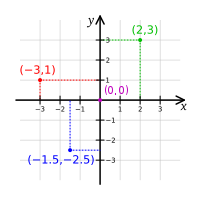
Photo from wikipedia
Stimuli-responsive polymer architectures are attracting a lot of interest, but it still remains a great challenge to develop effective industrial-scale strategies. A single-stage and cost-effective approach was applied to fabricate… Click to show full abstract
Stimuli-responsive polymer architectures are attracting a lot of interest, but it still remains a great challenge to develop effective industrial-scale strategies. A single-stage and cost-effective approach was applied to fabricate a three-dimensional (3D) smart responsive surface with fast and reversibly switchable wetting between superhydrophobicity and superhydrophilicity/underwater superoleophobicity properties induced by photo and heat stimuli. Commercially available PVDF and P25TiO2 as starting materials fabricated with a scaled-up electrospinning approach were applied to prepare 3D smart switchable PVDF-P25TiO2 nanotextile superwetted by both UV and solar light that is simply recovered by heat at a reasonable time. The superhydrophilic/underwater superoleophobic photo-induced nanotextile will act in “water-removing” mode in which water quickly passes through and the oil is blocked on the surface. An acceptable recycling, reusing, and superior antifouling and self-cleaning performance arising from a TiO2 photocatalytic effect makes it highly desired in a green scaled-up industry oily wastewater treatment technology. With these advantages, a large-scale industrial production process can be simply simulated by applying a conducting mesh-like collector substrate.
Journal Title: ACS Omega
Year Published: 2020
Link to full text (if available)
Share on Social Media: Sign Up to like & get
recommendations!